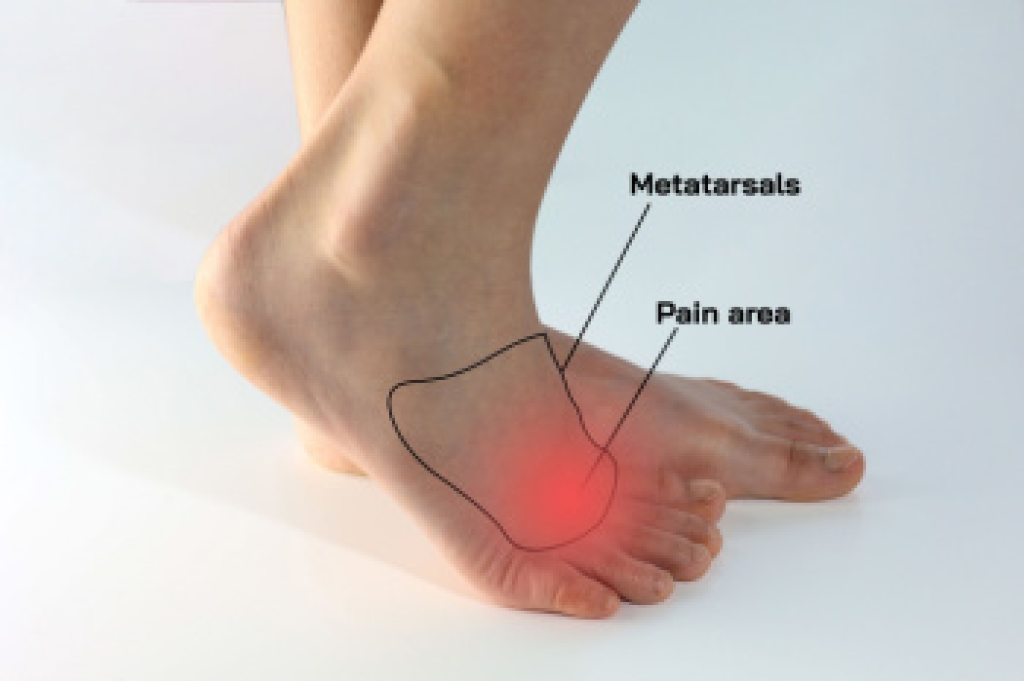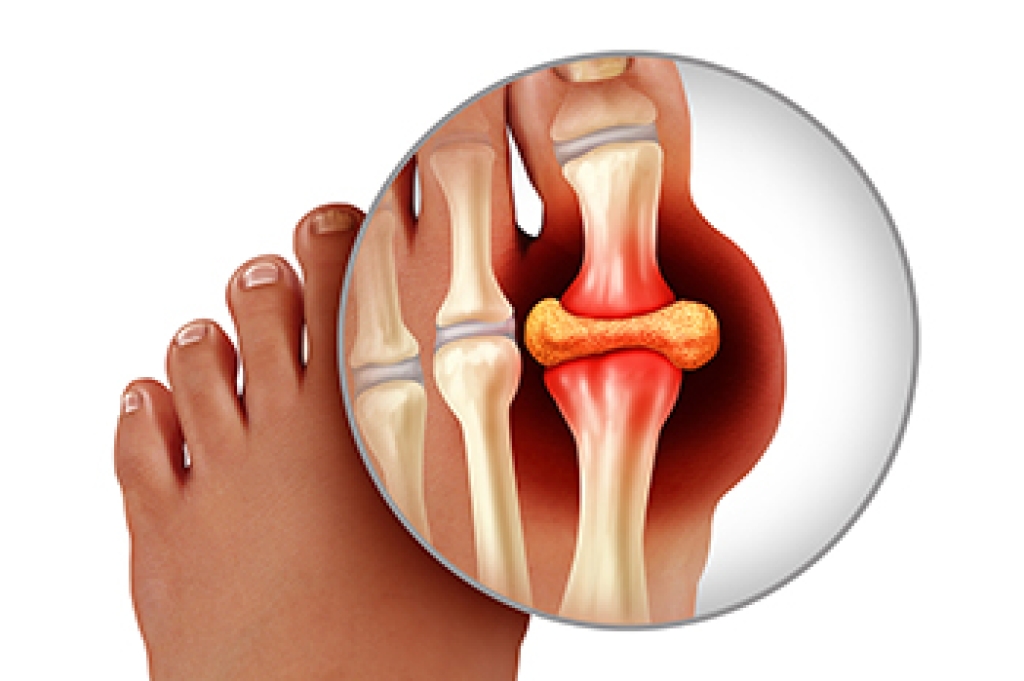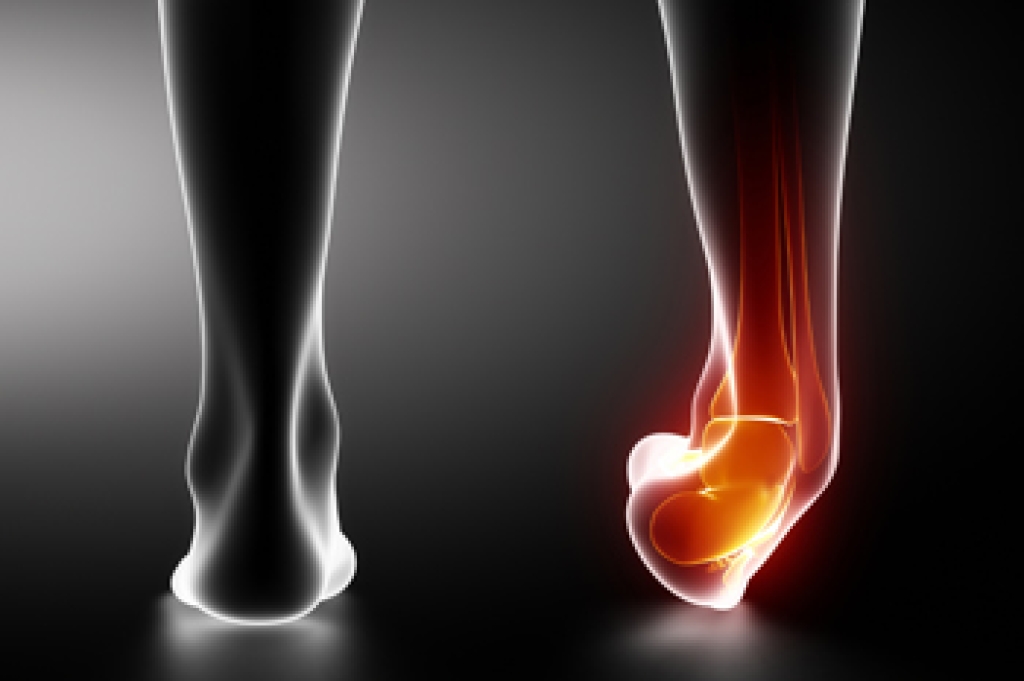Connect With Us
Blog
Blog
Combatting Morton's Neuroma Pain for Peak Athletic Performance
 Morton's neuroma can have a significant impact on athletes, affecting their performance and overall foot comfort. Morton’s neuroma occurs when the tissue around one of the nerves connected to the toes thickens and becomes inflamed. Symptoms of Morton’s neuroma, including pain and discomfort in the ball of the foot, can be exacerbated during activities that involve repetitive stress on the front of the foot, like running or jumping. This is why forefoot pain and Morton’s neuroma are more common in athletes who use those repetitive motions. Athletes experiencing Morton's neuroma may find their agility and endurance compromised. However, there are strategies to manage pain so athletes can continue to exercise. Choosing appropriate footwear with ample cushioning and room for the toes is crucial. Additionally, incorporating orthotic inserts can provide extra support and alleviate pressure on the affected area. Athletes should also consider modifying their training routines to include low-impact exercises and activities that reduce stress on the forefoot. If you have pain in the ball of your foot, it is suggested that you consult with a podiatrist who can locate the source of the pain and provide treatment options for conditions such as Morton’s neuroma.
Morton's neuroma can have a significant impact on athletes, affecting their performance and overall foot comfort. Morton’s neuroma occurs when the tissue around one of the nerves connected to the toes thickens and becomes inflamed. Symptoms of Morton’s neuroma, including pain and discomfort in the ball of the foot, can be exacerbated during activities that involve repetitive stress on the front of the foot, like running or jumping. This is why forefoot pain and Morton’s neuroma are more common in athletes who use those repetitive motions. Athletes experiencing Morton's neuroma may find their agility and endurance compromised. However, there are strategies to manage pain so athletes can continue to exercise. Choosing appropriate footwear with ample cushioning and room for the toes is crucial. Additionally, incorporating orthotic inserts can provide extra support and alleviate pressure on the affected area. Athletes should also consider modifying their training routines to include low-impact exercises and activities that reduce stress on the forefoot. If you have pain in the ball of your foot, it is suggested that you consult with a podiatrist who can locate the source of the pain and provide treatment options for conditions such as Morton’s neuroma.
Morton’s neuroma is a very uncomfortable condition to live with. If you think you have Morton’s neuroma, contact Dr. Castillo of Bronx Foot Care. Our doctor will attend to all of your foot care needs and answer any of your related questions.
Morton’s Neuroma
Morton's neuroma is a painful foot condition that commonly affects the areas between the second and third or third and fourth toe, although other areas of the foot are also susceptible. Morton’s neuroma is caused by an inflamed nerve in the foot that is being squeezed and aggravated by surrounding bones.
What Increases the Chances of Having Morton’s Neuroma?
- Ill-fitting high heels or shoes that add pressure to the toe or foot
- Jogging, running or any sport that involves constant impact to the foot
- Flat feet, bunions, and any other foot deformities
Morton’s neuroma is a very treatable condition. Orthotics and shoe inserts can often be used to alleviate the pain on the forefront of the feet. In more severe cases, corticosteroids can also be prescribed. In order to figure out the best treatment for your neuroma, it’s recommended to seek the care of a podiatrist who can diagnose your condition and provide different treatment options.
If you have any questions, please feel free to contact our offices located in Bronx, NY Yonkers, NY . We offer the newest diagnostic and treatment technologies for all your foot care needs.
Definition and Common Symptoms of Gout

Gout, a form of inflammatory arthritis, occurs when uric acid accumulates in the joints, leading to the formation of needle-like crystals. This condition, often characterized by sudden, intense pain, typically targets the big toe but can affect any joint. The primary culprit is an excess of uric acid, a byproduct of purine metabolism, causing inflammation and debilitating discomfort. Individuals grappling with gout frequently experience swelling, redness, and extreme tenderness in the affected joint, making movement excruciating. While the big toe is a common target, gout can also strike joints in the ankles, knees, wrists, and fingers. The pain, often reaching its peak within hours, can be relentless and accompanied by lingering discomfort. Recognizing the definition and symptoms of gout is pivotal for prompt diagnosis and effective management. If you have pain in your big toe, it is strongly suggested that you visit a podiatrist who can properly diagnose, treat, and manage gout or any other condition it might be.
Gout is a foot condition that requires certain treatment and care. If you are seeking treatment, contact Dr. Castillo from Bronx Foot Care. Our doctor will treat your foot and ankle needs.
What Is Gout?
Gout is a type of arthritis caused by a buildup of uric acid in the bloodstream. It often develops in the foot, especially the big toe area, although it can manifest in other parts of the body as well. Gout can make walking and standing very painful and is especially common in diabetics and the obese.
People typically get gout because of a poor diet. Genetic predisposition is also a factor. The children of parents who have had gout frequently have a chance of developing it themselves.
Gout can easily be identified by redness and inflammation of the big toe and the surrounding areas of the foot. Other symptoms include extreme fatigue, joint pain, and running high fevers. Sometimes corticosteroid drugs can be prescribed to treat gout, but the best way to combat this disease is to get more exercise and eat a better diet.
If you have any questions, please feel free to contact our offices located in Bronx, NY Yonkers, NY . We offer the newest diagnostic and treatment technologies for all your foot care needs.
Common Foot and Ankle Injuries in Soccer

Soccer, a dynamic sport demanding agility and skill, often comes with its share of foot and ankle injuries, falling into acute and cumulative categories. Acute injuries, stemming from falls or player collisions, can be traumatic. Conversely, cumulative injuries result from repetitive stress, causing progressive aches and impairments. Soccer players frequently encounter lateral ankle sprains, occurring when kicking with the top of the foot, and medial ankle sprains from toe-out movements with the foot flexed upward. The chronic Achilles tendonitis, felt as pain in the back of the ankle, is a consequence of soccer's repetitive and sudden movements. A more severe injury, an Achilles tendon rupture, involves a partial or complete tear with an audible popping sound, often happening during fast, explosive actions on the field. Stress fractures, prevalent among soccer players, arise from overuse or repeated impacts, leading to bone bruising or slight cracking. These injuries often trace back to overuse, poor conditioning, or insufficient warm-ups. It is suggested that if you or your child incur foot and ankle injuries from playing soccer, you schedule an appointment with a podiatrist.
Ankle and foot injuries are common among athletes and in many sports. They can be caused by several problems and may be potentially serious. If you are feeling pain or think you were injured in a sporting event or when exercising, consult with Dr. Castillo from Bronx Foot Care. Our doctor will assess your condition and provide you with quality foot and ankle treatment.
Common Injuries
The most common injuries that occur in sporting activities include:
- Achilles Tendonitis
- Achilles Tendon Rupture
- Ankle Sprains
- Broken Foot
- Plantar Fasciitis
- Stress Fractures
- Turf Toe
Symptoms
Symptoms vary depending upon the injury and in some cases, there may be no symptoms at all. However, in most cases, some form of symptom is experienced. Pain, aching, burning, bruising, tenderness, tightness or stiffness, sensation loss, difficulty moving, and swelling are the most common symptoms.
Treatment
Just as symptoms vary depending upon the injury, so do treatment options. A common treatment method is known as the RICE method. This method involves rest, applying ice, compression and elevating the afflicted foot or ankle. If the injury appears to be more serious, surgery might be required, such as arthroscopic or reconstructive surgery. Lastly, rehabilitation or therapy might be needed to gain full functionality in the afflicted area. Any discomfort experienced by an athlete must be evaluated by a licensed, reputable medical professional.
If you have any questions, please feel free to contact our offices located in Bronx, NY Yonkers, NY . We offer the newest diagnostic and treatment technologies for all your foot care needs.
Types of Ankle Fractures

Ankle fractures are common in injuries, making up approximately 10 percent of all fractures in trauma cases. They usually occur more in young men and older women. When there is a bigger accident with multiple injuries, ankle problems can greatly interfere with movement. There are different ways to classify ankle fractures. One way was introduced by Percival Pott, who looked at how many parts of the ankle bones got broken. There are two other systems called Lauge-Hansen and Danis-Weber that also offer ways to think about how the injury happened and how stable the break is. Each system offers good information. When doctors look at X-rays of ankle fractures, they have a certain way to approach repair. Fixing a displaced ankle fracture and making it line up right usually gives good results. But sometimes, even with the bones in the right place, the ankle can still have problems later because the cartilage is involved. About 15 percent of people may have arthritis in their ankle after this kind of fracture. If you have sustained an ankle fracture, it is suggested that you schedule an appointment with a podiatrist to have appropriate tests taken, a diagnosis made, and appropriate treatment offered.
Broken ankles need immediate treatment. If you are seeking treatment, contact Dr. Castillo from Bronx Foot Care. Our doctor can provide the care you need to keep you pain-free and on your feet.
Broken Ankles
A broken ankle is experienced when a person fractures their tibia or fibula in the lower leg and ankle area. Both of these bones are attached at the bottom of the leg and combine to form what we know to be our ankle.
When a physician is referring to a break of the ankle, he or she is usually referring to a break in the area where the tibia and fibula are joined to create our ankle joint. Ankles are more prone to fractures because the ankle is an area that suffers a lot of pressure and stress. There are some obvious signs when a person experiences a fractured ankle, and the following symptoms may be present.
Symptoms of a Fractured Ankle
- Excessive pain when the area is touched or when any pressure is placed on the ankle
- Swelling around the area
- Bruising of the area
- Area appears to be deformed
If you suspect an ankle fracture, it is recommended to seek treatment as soon as possible. The sooner you have your podiatrist diagnose the fracture, the quicker you’ll be on the way towards recovery.
If you have any questions, please feel free to contact our offices located in Bronx, NY Yonkers, NY . We offer the newest diagnostic and treatment technologies for all your foot care needs.
Blog Archives
- 2026
- 2025
- 2024
- 2023
- 2022
- 2021
- 2020

